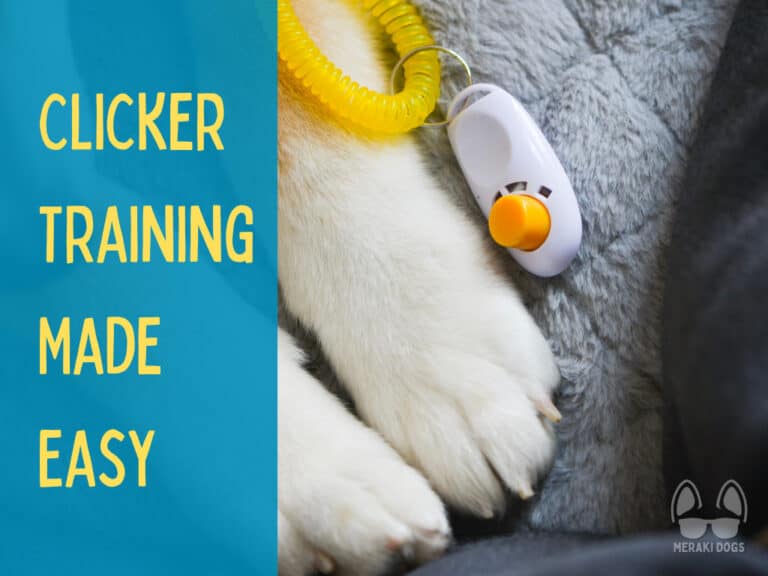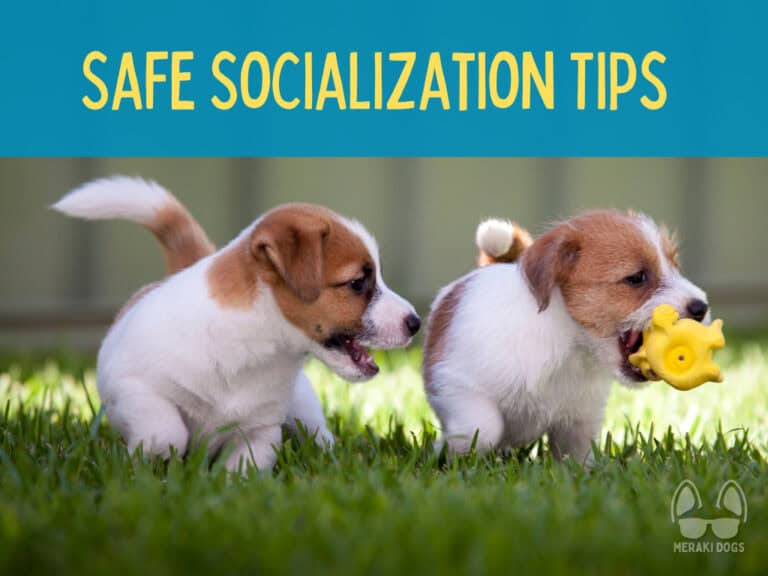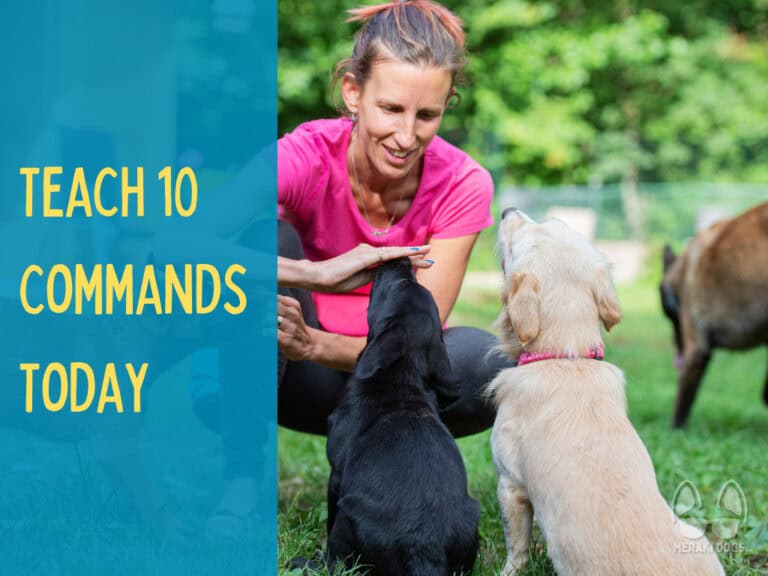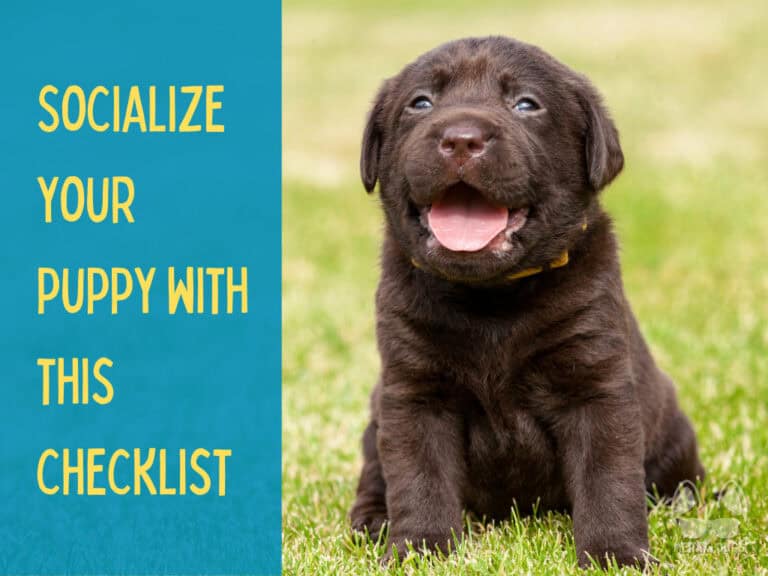When to Start Training a Puppy [2024]

As a professional dog trainer, a popular question I get from new pet parents is when to start training a puppy. Early training is crucial for a puppy’s development, setting the stage for future behavior and learning. This post aims to provide insights on the best age to start training a puppy and why early training is beneficial.
Key Takeaways:
- Understand the ideal age to start training a puppy.
- Learn about the developmental stages of puppies.
- Discover the benefits and tips for early training.

Understanding Puppy Development Stages
Neonatal Period (0-2 Weeks)
During the neonatal period, puppies are entirely dependent on their mother. Their senses are not fully developed, and their interaction with the world is limited. Training opportunities are minimal during this stage.
Transitional Period (2-4 Weeks)
In this period, puppies begin to develop their senses and start showing early social behaviors. However, training is still limited, focusing more on gentle handling and exposure to new experiences.
Socialization Period (3-12 Weeks)
The socialization period is a critical window for learning and development. This is the ideal age range to begin basic training and expose puppies to various experiences, people, and other animals.
Juvenile Period (3-6 Months)
During the juvenile period, puppies continue to learn and socialize. This is an excellent time to expand training to include more complex commands and behaviors.
Adolescent Period (6-18 Months)
The adolescent period involves reinforcing training and handling behavioral changes associated with adolescence. Consistency and patience are key during this stage to address any emerging challenges.

Ideal Age to Start Training
Starting at 8 Weeks
Starting training at 8 weeks old is considered optimal. At this age, puppies are ready to begin learning basic commands and routines. Introducing training as soon as your puppy arrives home helps establish good habits from the start.
Benefits of Starting at 8 Weeks:
- Adaptability: Puppies are highly adaptable at this age, making it easier to teach new behaviors.
- Bonding: Early training helps build a strong bond between you and your puppy.
- Foundation: Laying a strong foundation early on sets the stage for future learning.
Early Training Focus
Key areas to focus on during initial training include:
- Potty Training: Establishing a consistent routine to prevent accidents.
- Crate Training: Making the crate a safe and positive space.
- Basic Commands: Teaching simple commands like “sit,” “come,” and “stay.”
- Positive Reinforcement: Using treats, praise, and play to reward good behavior.

Benefits of Early Training
Building a Strong Foundation
Early training sets the stage for future learning by establishing good habits and behaviors from the start. Puppies that begin training early are more likely to develop into well-behaved adult dogs.
Socialization and Confidence
Early training plays a crucial role in socializing puppies with people, other animals, and various environments. Positive early experiences help prevent fear and aggression, building a confident and well-adjusted dog.
Preventing Problem Behaviors
Starting training early helps address common issues like biting, chewing, and barking before they become ingrained habits. Consistency and patience in early training shape your puppy’s behavior, making them more manageable as they grow.

Training Milestones by Age
8-12 Weeks
- Basic Commands: Introduce simple commands like sit, come, and stay.
- Potty Training: Establish a consistent routine for bathroom breaks.
- Crate Training: Make the crate a comfortable and positive space.
- Socialization: Begin exposing your puppy to different people, animals, and environments to build confidence.
12-16 Weeks
- Leash Walking: Start teaching your puppy to walk on a leash and practice basic manners.
- Continued Socialization: Continue introducing your puppy to new environments and experiences.
- Reinforce Basic Commands: Strengthen the commands learned earlier and introduce new ones.
4-6 Months
- Advanced Commands: Teach more complex commands like down, leave it, and drop it.
- Training Sessions: Increase the duration and complexity of training sessions.
- Socialization: Keep building your puppy’s confidence through varied experiences.
6-12 Months
- Refining Commands: Focus on refining and reinforcing all learned commands.
- Behavioral Issues: Address any emerging behavioral problems with consistent training.
- Advanced Training: Prepare for more advanced training or specific activities such as agility or obedience competitions.
Tips for Successful Early Training
Consistency is Key
Maintaining a regular training schedule is crucial for successful early training. Consistency helps your puppy understand expectations and accelerates the learning process. Ensure all household members are involved in the training efforts and use the same commands and techniques.
Patience and Flexibility
Understand that learning takes time and each puppy is unique. Be patient and flexible in your approach, adjusting training methods to suit your puppy’s individual needs. Celebrate small victories and keep training sessions short and enjoyable to maintain your puppy’s interest.
Conclusion: When to Start Training a Puppy
Starting training early is crucial for your puppy’s development and sets the stage for future learning. By understanding the ideal age to start training and focusing on key areas like potty training, crate training, and basic commands, you can build a strong foundation for your puppy. Remember the benefits of early training, such as building confidence, socialization, and preventing problem behaviors.
Stay consistent, use positive reinforcement, and be patient and flexible in your training approach. With dedication and effort, you can help your puppy grow into a well-behaved and confident adult dog.
For more tips and personalized guidance, sign up for our newsletter and join the waiting list for our upcoming dog training course.






